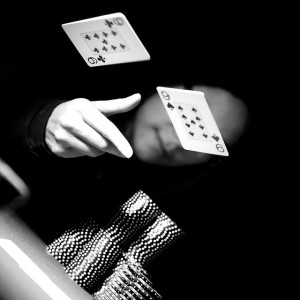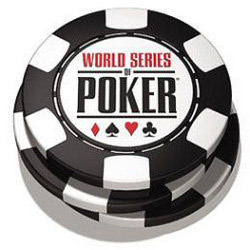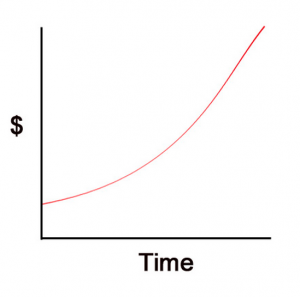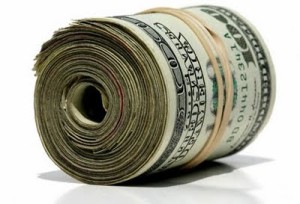On the 5th of May 2006 I left my cosy office job for the last time, in order to throw my hat into the ring as a professional poker player. Long-time members of the ITH forums may remember my plea for last minute advice before I finally took the plunge. No matter how prepared I thought I was, giving up a guaranteed income to try and make my way as a professional gambler was a huge step and one which I don’t think you can ever be completely ready for. I was extremely grateful for all the advice I received.
About 6 months prior to this I had written an article called One Week as a Pro (note to editor, please hyperlink), in which I described taking a week off work to see what life would be like as a poker pro. I thought I would write a follow up to this article, chronicling my experiences as a full time pro and answering some of the questions that I am frequently asked. In the last year I have received several inquiries as to my progress and experiences now I have taken the plunge for real. It has been an exciting year, with plenty of ups and downs, but ultimately it has been a rewarding experience, both financially and in other ways as well.
The Early Days
My first week as a pro was a very strange experience. Naturally I remember my first day with some nostalgia. Waking up in a quiet house, hours before most people arise, with no job to go to, just a PC in an empty office and my virtual opponents for company. It would have been nice to get off to a good start, but that first day turned out to be a bit of a horror show, when I lost over $500. Not by any means the worst day I would have in the months to follow, but certainly not the start I had hoped for. Obviously I had it drummed into my head about the long term and how I was destined to have many losing days. But turning up for work, working for 7 hours and finishing with far less money than I started with was a new experience and not a pleasant one, especially when my parents and friends started calling to find out how I had done.
Fortunately my results picked up as the week went on. I recorded small wins on Tuesday and Wednesday, before things became very surreal towards the end of the week. On Thursday and Friday I recorded wins of 170 and 240 big bets respectively; massive wins in any context. In fact, that first Friday is still the best individual day I have recorded. My target was to average winning $4000 per month, so I was now in the ridiculous position of having won a months money in two days. When my mum called at the weekend, I now had the quite different problem of explaining how I couldn’t possibly hope to keep up anything close to this win rate in the long run.
I didn’t keep it up of course. In fact, for the rest of the month I experienced what I perceived as below average results. This didn’t worry me too much, because the freak week at the start of the month meant that I was still well above expectation. It was the start of summer and I was excited and confident about my future as a professional poker player. I knew that it was inevitable that I would experience large downswings in the future, but I was confident that I had the bankroll and the mindset to survive them.
The Boundaries of Variance
“Everybody will eventually run worse than they thought was possible” – Craig Hartman
I had heard this quotation before. I had even used it in The Poker Mindset. But staring at the words at the end of summer 2006, I really felt them. For the last few months I had indeed been running worse than I thought was possible. I had heard stories about winning players going on downswings of 400, 500, in one case even 800 big bets, and I knew that in theory it could happen to me too. But such a large downswing hitting so soon after I turned pro was something that I could definitely have done without, both from a financial point of view and from a confidence perspective.
I certainly won’t bore you with too many details of the downswing. It was more notable for it’s length than its ferocity. I ran badly for around 30,000 hands, before making a bit of money for a period and then running badly again for a further 25,000. To compound matters, I took two weeks off work for a holiday during this period (including the ITH convention) and obviously did not make any money during that period either (I don’t think double-flop hold’em is my game). Financially I managed to stay afloat for two reasons:
1. Rakeback and the occasional bonus
2. A very understanding girlfriend who was prepared to pay all the bills and living expenses while I wasn’t earning any money.
In reality, I was never in any danger of going bust, but if it wasn’t for these two factors then it may have been game over. The downswing itself was only around 450 big bets, but if I had had to pay living expenses as well, then my bankroll (which was around 900 big bets at the start of the downswing) would have dropped to a level where I would have had trouble carrying on. In fact, the events that occurred a couple of months later meant that it would have certainly been the end, but more on that later.
Psychologically I think I held up pretty well during this period. In fact, looking back on it I am proud that despite running so badly so soon after I started playing professionally, I never really lost confidence, gave up hope or allowed my game to deteriorate in any serious way. Of course, I did start to wonder if I would ultimately have to rejoin the workforce. I will even admit to casually looking at some job vacancy pages, but never with any serious intention of quitting.
One thing that I did do that was extremely worthwhile was to start looking at some areas of my game where I had traditionally struggled and really tried hard to improve. In particular I felt that I was folding too often to turn raises and not value betting the river enough. Through a lot of work, including reading, posting and simulating, I now feel I have improved these areas of my game. This is work that I am continually reaping the benefits of even now that the downswing is long in the past. The importance of working on your game during a downswing cannot be overestimated.
Bad Beat or Bad Play?
The biggest bad beat I have ever taken came last fall. Results had improved by this time and my bankroll was growing. Well, in theory at least. Unfortunately I had mainly been doing well at one particular site, a site that seemed to be having some trouble with the cashing out process. In fact, a thorough search of the internet revealed that many of their other players had been having the same problems. As the scale of the problem became more apparent, I became more and more worried about the status of my money. My account held about $8000 plus about $2000 in unpaid rakeback, over $10k in all. I received various emails promising me money by this date and that date, but none ever materialised. At time of writing, it has still not been paid, although it is still apparently in my account and there are various actions being taken by groups of players to recover the money. A natural pessimist, I have now written the money off and realistically feel that my equity in that $10k is probably less than a tenth of that.
This is the first time I have never told anybody other than my girlfriend about this. It is not something I wanted to make a big drama about, but this story wouldn’t really be complete without it. Because I had only recently suffered a large downswing, this could have been a huge problem for me. In fact, discounting the money that I would never see again, my bankroll was actually down to around 200 big bets at one point, obviously way too small to be playing professionally. Unknown to me, I was only a couple of bad sessions away from busto. Fortunately a very good month of results followed by another month of Becca paying the bills meant that by Christmas my bankroll was back to a reasonable level again. Ironically my professional poker career was saved by my ignorance. There is no way I would have carried on had I known my bankroll was down to 200 big bets, even though I had savings I could have dipped into. After the downswing, this would have been the straw that broke the camel’s back.
I am furious at myself for putting myself in a position where this could happen. Two big mistakes that I made:
1. I should have thoroughly researched the site before I put any money in at all. As it happens, I doubt there were any problems at the time I initially deposited, but it’s something I didn’t do well enough. By and large I relied on the word on a trusted affiliate that the site was solid.
2. I should never have had such a large portion of my bankroll in one place at one time. Unfortunately this happened because I ran very well at this site while simultaneously running very badly at others. However, I should have taken balancing measures sooner.
These are mistakes that I will never make again. Another painful lesson in the world of professional poker that I have now learned.
The Invisible Side of Variance
This was one of those Sliding Doors moments where pure chance determined my direction. I was lucky enough to get a large upswing just when I needed it and if there was anybody to thank I would have been extremely thankful. The good results have kept coming since then until the time of writing (mid April). There have been bad days and weeks, but I have finished every month with good results. I now have a very healthy bankroll and could not make any money at the tables for several months without really having to worry about money. This is the other side of variance. The one a lot of players don’t acknowledge and instead attribute to their great play.
I would like to say that my game has improved a lot since my downswing last year, but it’s very easy to say that when you’re on an upswing. I have to be honest and say that while my game certainly has improved, I have received a lot of luck too. When this luck takes a dive, then my results inevitably will too. I have been through too much in the last year to take anything for granted. Poker seems like a very easy game when you’re winning and sitting at the table when you are in the middle of an upswing, when you know that even a horrific session won’t matter much, is a very good feeling indeed. But the next downswing is always potentially just around the corner. And then suddenly it doesn’t feel so easy any more.
The Pro Lifestyle
One of the biggest apprehensions I had when giving up my office job is how I would get on with the pro lifestyle. I don’t like keeping unsociable hours, I have the potential to get bored easily and I certainly don’t see myself as a ‘Ship it Holla Balla’ type (if you don’t know, don’t ask). However, despite my initial misgivings I have loved life as a professional poker player. While I am not good at working late nights and weekends, I am very good at getting up early and playing with the late night US crowd. And despite playing around 400,000 hands in the last year I haven’t got bored with poker to any significant degree. Sure, I wouldn’t say that I love every minute of my working day, but I enjoy it enough that it is easy to get up in the morning and easy to stay disciplined and put the hours in.
It has been interesting hearing the reactions of various people when I say I am a professional poker player. I tend not to associate too much with the self-righteous religious right, so the reactions I have received have mostly been positive, varying from curiosity and interest to something approaching awe. I am aware that this is probably not a career that I can continue with indefinitely. Poker as we know it will probably not last forever and I am bound to get some kind of burnout in the end. But at the moment, I feel that it is something I want to continue with as long as it is feasible. Playing professional poker is just so much more fun than my old office job!
Obviously I wouldn’t be able to get as far as I have without a lot of support. Becca has been especially supportive. She has accepted the unpredictable nature of my job without question and has never once complained during the bad months where I haven’t been able to contribute my fair share towards the mortgage and bills. My parents have also been extremely supportive, even though what I am doing is completely outside their sphere of experience and somewhat contrary to the way I have been brought up. Obviously I am totally honest with Becca about my results, but my parents tend to get a more watered down report that mainly consists of me doing ‘okay’, ‘pretty well’ or ‘not too bad’ regardless of my actual results. I certainly don’t want to send them through the emotional rollercoaster of poker variance.
It’s a strange life, but it is working for me.
Ian Taylor, AKA “Piemaster is the Co-Author of the highly regarded Poker Psychology Book “The Poker Mindset”.
Submit your review | |








